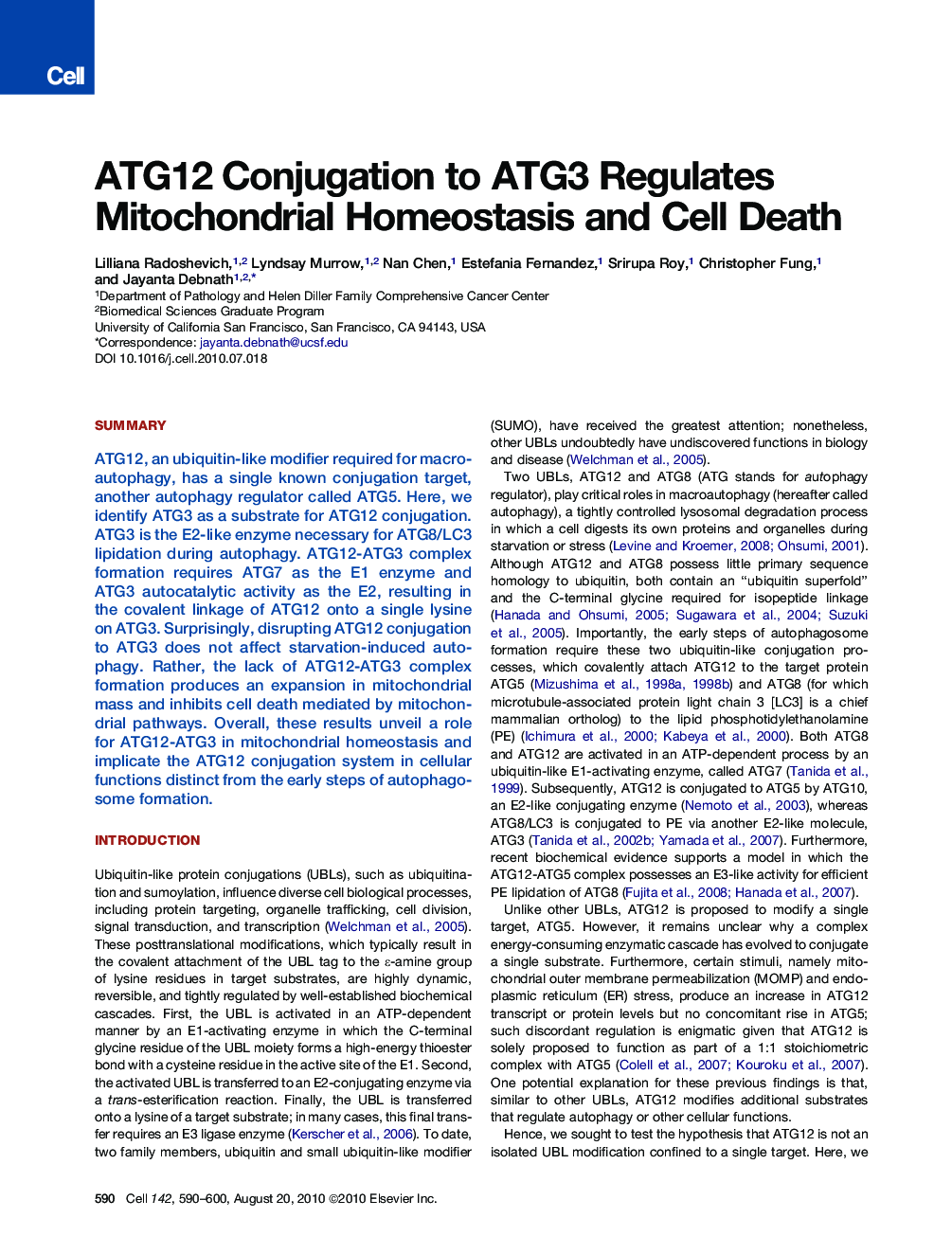| کد مقاله | کد نشریه | سال انتشار | مقاله انگلیسی | نسخه تمام متن |
|---|---|---|---|---|
| 2036771 | 1072281 | 2010 | 11 صفحه PDF | دانلود رایگان |

SummaryATG12, an ubiquitin-like modifier required for macroautophagy, has a single known conjugation target, another autophagy regulator called ATG5. Here, we identify ATG3 as a substrate for ATG12 conjugation. ATG3 is the E2-like enzyme necessary for ATG8/LC3 lipidation during autophagy. ATG12-ATG3 complex formation requires ATG7 as the E1 enzyme and ATG3 autocatalytic activity as the E2, resulting in the covalent linkage of ATG12 onto a single lysine on ATG3. Surprisingly, disrupting ATG12 conjugation to ATG3 does not affect starvation-induced autophagy. Rather, the lack of ATG12-ATG3 complex formation produces an expansion in mitochondrial mass and inhibits cell death mediated by mitochondrial pathways. Overall, these results unveil a role for ATG12-ATG3 in mitochondrial homeostasis and implicate the ATG12 conjugation system in cellular functions distinct from the early steps of autophagosome formation.
Graphical AbstractFigure optionsDownload high-quality image (293 K)Download as PowerPoint slideHighlights
► The autophagy ubiquitin-like modifier ATG12 is conjugated to ATG3
► ATG12-ATG3 complex does not affect starvation-induced autophagy
► ATG12-ATG3 restricts mitochondrial mass and promotes mitochondrial fusion
► Disrupting ATG12 conjugation to ATG3 renders cells resistant to mitochondrial cell death
Journal: - Volume 142, Issue 4, 20 August 2010, Pages 590–600